Since its founding 77 years ago, Dr. Bronner’s evolved from a niche soap company favored by hippies and homemakers to a powerhouse brand that trades on the progressive ideals of sustainability, free expression and social justice.
The family-run company based in Vista saw its annual revenues balloon from $4 million to $200 million in the last 25 years. Known for its bottles and bars of soap wrapped in micro-font musings about love and world peace, Dr. Bronner’s can be found on the shelves of supermarkets and drugstores nationwide.
In recent years, the current generation of Bronner family executives has taken the company’s progressive ethos to another level by openly embracing psychedelic drugs. Since 2019, Dr. Bronner’s has contributed more than $14 million to psychedelics research and drug policy reform. The company’s social media pages are filled with posts touting the medicinal and spiritual potential of hallucinogens, from psilocybin to ketamine to MDMA, also known as ecstasy.
In January 2022, Dr. Bronner’s became one of the first companies in the country to offer employees ketamine-assisted mental health therapy through its health benefits package.
“Let’s face it, the world would be a far better place if more people experienced psychedelic medicines,” said David Bronner, the company’s CEO (“Cosmic Engagement Officer”), in a New York Times article about the ketamine therapy program.
But a wrongful death lawsuit filed in December alleges the company has also fostered a risky culture of drug use among some leaders and employees, claiming they routinely use potent psychedelics as an unregulated form of “healing” and for recreational purposes.
The complaint filed in San Diego County Superior Court was brought by the family of Denise Lozano, a former Dr. Bronner’s employee who, in 2022, died of an accidental overdose at the age of 50.
“Denise’s life was cut short unnecessarily, unjustifiably, and without the dignity that she had earned from the people she trusted and that proclaimed to love her the most, the Dr. Bronner’s family,” the lawsuit states.
The Lozano family declined an interview request through their attorney Marc Bragg.
Lozano worked in the Dr. Bronner’s events and experience division. The team sets itself apart from typical corporate marketing departments by putting on promotional events at festivals like Burning Man and delivering on-the-ground humanitarian aid. She developed a close relationship with her colleagues and executives at the company, including David Bronner and his wife Mia Bronner, who manages the events team.
After Lozano suffered a back injury while working with the team, the lawsuit alleges, David Bronner, Mia Bronner and another colleague arranged for her to receive a “ketamine massage” from an unlicensed masseuse to alleviate the pain. The lawsuit claims the masseuse gave Lozano a lethal dose of MDA, a potent drug that’s similar to MDMA, which was also found in her system. The county medical examiner’s autopsy found no ketamine in her system, KPBS confirmed.
Have a tip? 📨
The Investigations Team at KPBS holds powerful people and institutions accountable. But we can’t do it alone — we depend on tips from the public to point us in the right direction. There are two ways to contact the I-Team.
For general tips, you can send an email to investigations@kpbs.org.
If you need more security, you can send anonymous tips or share documents via our secure Signal account at 619-594-8177.
To learn more about how we use Signal and other privacy protections, click here.
Lozano had previously participated in the company’s ketamine-assisted mental health program. According to the lawsuit, Lozano was led to believe the ketamine massage was part of the company’s official health care offerings — but it wasn’t.
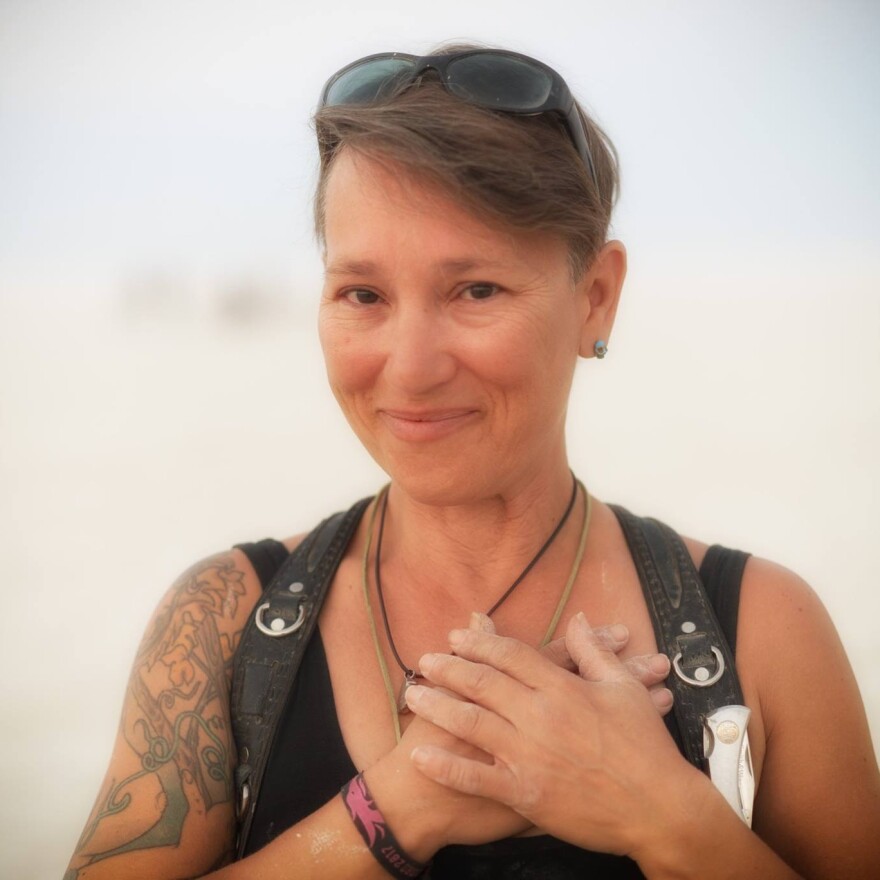
One person close to Dr. Bronner’s, who asked to go by the letter “M” due to fear of legal repercussions for speaking out about the company, said drug use among the events team and certain executives is “common.”
“It is part of the culture,” M said. “There is an emphasis on healing and community. But that recreational part — no one wants to talk about it, because they don’t want it to be taken away.”
David Bronner and Mia Bronner declined an interview request through a company spokesperson, citing the pending litigation.
“Denise Lozano’s tragic passing was not the fault of anyone associated with Dr. Bronner’s,” wrote Ryan Fletcher, a spokesperson for the company, in an emailed statement. “David and Mia Bronner loved Denise Lozano and remain to this day deeply saddened by her death. She was a beloved employee and treasured member of Dr. Bronner’s community.”
After KPBS requested comment, the company posted a statement responding to the lawsuit.
Christian Allbert, the self-described “energy healer” who allegedly gave Lozano the massage on the day she died, did not respond to emails, voicemails or a social media message seeking comment.
The promise and peril of psychedelics
The Bronners’ belief in the healing power of psychedelics comes as the drugs have, to a degree, gained mainstream acceptance in recent years.
Certain psychedelics have demonstrated early promise in helping address some stubborn mental health conditions. Ketamine in particular has shown effectiveness in treating conditions, such as depression, post-traumatic stress disorder (PTSD), suicidal ideation and substance use disorder.
“It is profoundly exciting, some of the initial research that we've seen,” said Dr. Peter Grinspoon, a primary care doctor and cannabis specialist at Massachusetts General Hospital.
But he cautions that demand for ketamine as a therapeutic is outpacing the evidence.
“Right now, the interest in ketamine is like a firestorm,” he said. “Everybody thinks it could do everything for everyone.”
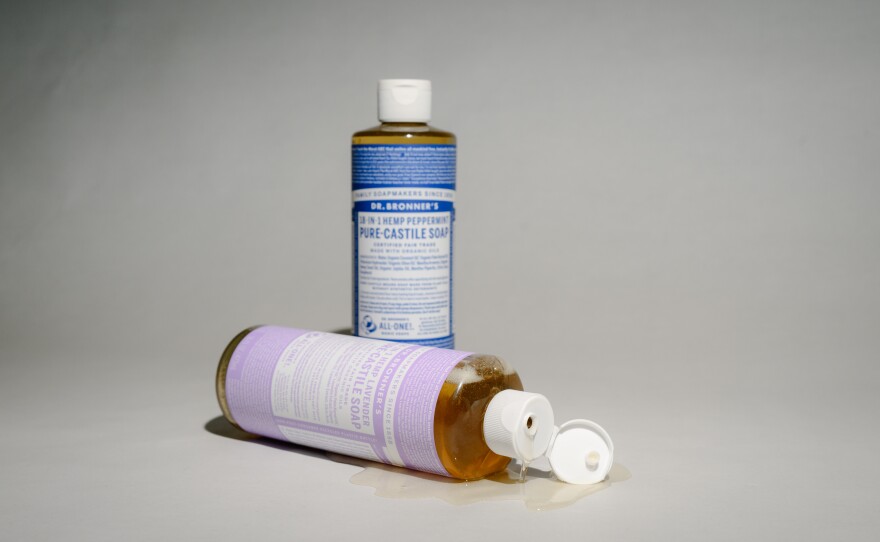
Amid this unbridled enthusiasm, medical experts caution there are still substantial risks and many unknowns. Ketamine was developed as an anesthetic in the 1960s and used on the battlefields in Vietnam. For years, it was known as a party drug with serious dissociative effects.
“This isn't, you know, sitting down with somebody and drinking green tea together,” said Dr. Caleb Alexander, a practicing internist and professor of epidemiology and medicine at the Johns Hopkins Bloomberg School of Public Health. “You should have medical professionals on hand when the drug is being delivered. I mean, the results without that can be catastrophic.”
The ketamine-assisted therapy Dr. Bronner’s offers to its employees follows a strict protocol, according to Enthea, the company that administers the program. The process includes “medical and psychiatric intake, preparatory sessions, ketamine medicine sessions and therapy sessions.”
The massage services allegedly provided by Allbert were not part of Enthea’s program.
One year into the program, Enthea said it showed positive results among the 7% of eligible employees who participated.
From the town square to Burning Man
The current generation of Bronner executives is in many respects honoring the values that have been central to the company since its founding in the late 1940s.
Emanuel Bronner was a third-generation German soapmaker who immigrated to the U.S. at the age of 21 in 1929. In the coming years, he started referring to himself as “Dr. Bronner,” founded his own soap company and began preaching his philosophy of world unity in Los Angeles’ Pershing Square.
Passersby paid little attention to the man’s impassioned ramblings. But they did like the soap he sold on the side. So, in a stroke of deft marketing, Emanuel Bronner turned his soap labels into miniature manifestos.
Decades later, his legacy lives on through these labels.
“Under one God, one all-embracing, everloving Eternal Father, we’re all Sisters & Brothers!” proclaims today’s bottle. “Exceptions eternally? Absolutely none!”
Like his grandfather before him, David Bronner has melded his own deeply-held beliefs with the family business. But long gone are the days of shouting about love and suds in the town square.
For years, David Bronner has used the Dr. Bronner’s platform to advocate for drug policy reform and psychedelic self-determination. In one company video, he described his own experience using psychedelic drugs to find clarity and purpose in life.
In a video posted to the company’s TikTok page last year, David Bronner weighed the pros and cons of taking psychedelics in a controlled, medical setting versus an unregulated (or “self-regulating”) setting. While he acknowledged the increased safety of a medical setting, he touted the unregulated option.
“For long-term mental health, arguably this is the superior model,” he said.
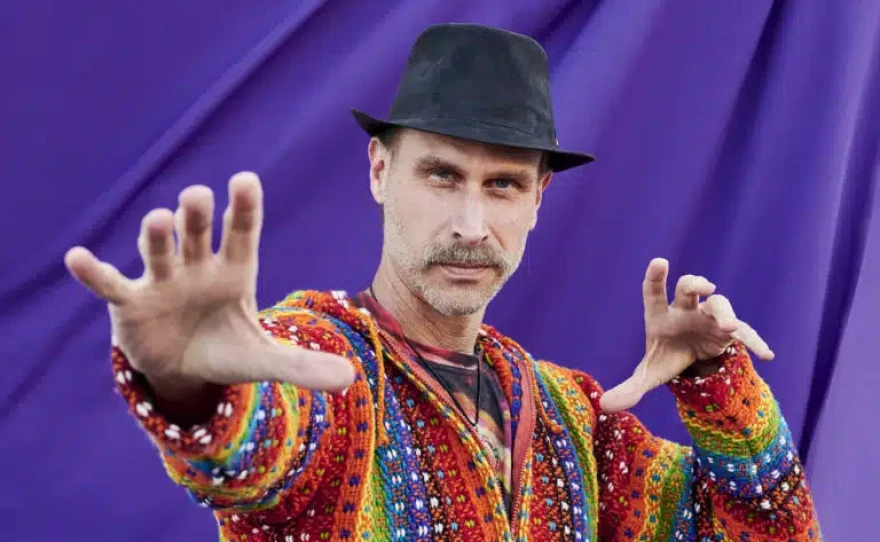
The new generation of Dr. Bronner’s leaders also brought a revamped branding strategy. The company’s growing public profile is partly owed to its events team, also known as the Foamy Homies.
The team is made up of artists, performers and brand ambassadors who attend parades, parties and major festivals, including Burning Man. DJs bump-pulsing beats as artists showcase their trippy creations. Brand ambassadors dish out soap samples and blast attendees with “magic foam.” Dancing is always encouraged.
The lawsuit alleges crew members regularly used psychedelics.
"It is common well-known practice amongst the members and participants of this “crew” to use drugs to enhance their mission and experience," the lawsuit states.
The Foamy Homies also deliver aid following tornadoes, hurricanes and other natural disasters, which is what initially attracted Lozano to the group.
Lozano was passionate about volunteering. In her free time, she built tiny homes for the homeless and helped run a nonprofit arts collaborative in San Diego.
Lozano volunteered with the Foamy Homies for six years before she officially started working for Dr. Bronner’s, according to the lawsuit. Her responsibilities included cooking and driving commercial trucks loaded with equipment.
“Denise was the sober one,” said M. “She was the camp mom.”
At festivals, Lozano woke up early to make coffee and stayed up late to clean after everyone crashed.
Over time, Lozano saw the Foamy Homies, David Bronner and Mia Bronner as family.
The injury and the “energy healer”
By late 2022, Lozano’s back pain had grown relentless.
It started months earlier when she drove a truck to Burning Man in the Nevada desert.
The festival is a big deal for the company and the Foamy Homie crew. It’s an opportunity to bring Dr. Bronner’s to throngs of potential customers who share the company’s progressive, New Age values.
The Foamy Homies host their own Burning Man “camp” and spend weeks preparing for the festival.
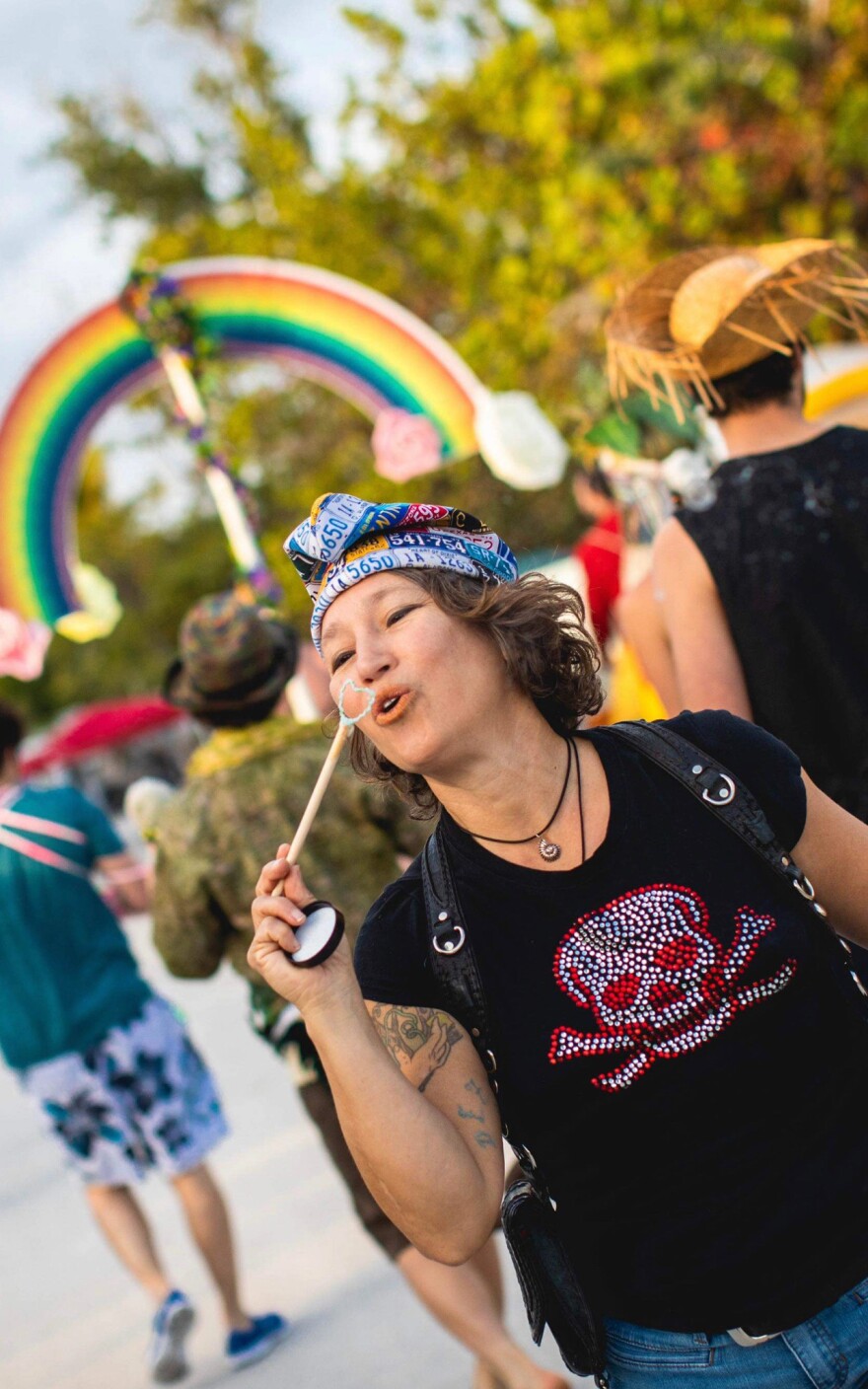
Driving a big truck over rough, unpaved desert roads left Lozano’s back knotted and aching. When the pain persisted for months, the lawsuit claims, David Bronner, Mia Bronner and another colleague arranged for Lozano to receive a “ketamine massage” from Allbert.
The lawsuit alleges David Bronner, Mia Bronner and members of the Foamy Homies used the “alternative products and services” offered by Allbert.
M confirmed Allbert had been providing his services to members of the Dr. Bronner’s community.
The lawsuit further claims David and Mia Bronner were aware of the overwhelming potency of the drugs administered by Allbert during his massages.
“Plaintiffs allege that defendants David and Mia Bronner knew of and had in fact received Ketamine massages and/or other drugs (as part of the massage) from defendants Allbert,” the lawsuit states.
According to one of his websites, Allbert has “dedicated his life to the study and practice of ancient healing traditions.” The services he advertises include meditative healing, intuitive bodywork and crystal grids.
Allbert is not certified to practice medicine in the state of California, according to the lawsuit. KPBS confirmed that his name does not appear in the California Massage Therapy Council’s state certification database.
Allbert gave Lozano the massage at her home, according to available records. At some point, Lozano died from a lethal dose of MDA. The lawsuit claims Allbert administered the drugs and called 911 nearly two hours after the massage should have ended.
Allbert was not arrested in connection with Lozano’s death. In 2023, however, San Diego County prosecutors charged him with possession of cocaine, ketamine and MDMA after a traffic stop. Allbert pleaded guilty to one count of possessing a controlled substance for sale and was sentenced to two years of formal probation.
The U.S. Drug Enforcement Administration (DEA) was at one point investigating Lozano’s death, though the status of any ongoing law enforcement investigation remains unclear.
“This is no longer a DEA case but (it) is still an open investigation,” wrote DEA spokesperson Kelly J McKay in an email. She did not clarify who is leading the open investigation.
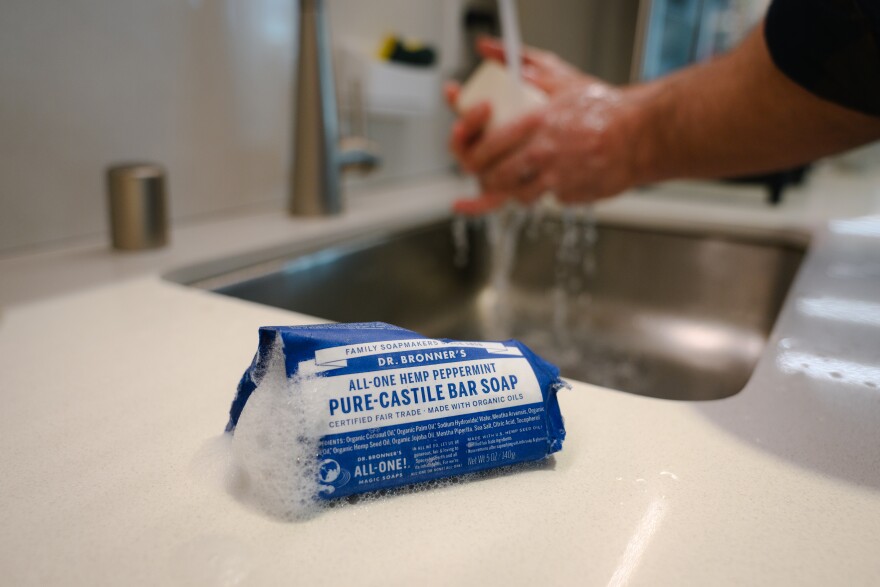
A spokesperson for the San Diego County Sheriff’s Office said it does not have an open investigation into the incident. The San Diego Police Department said an initial search did not turn up an open investigation.
The news of Lozano’s death devastated those around her. Family and friends, overcome with grief, organized multiple celebrations of life — from San Diego to San Francisco to Texas. Colleagues built an altar at the Dr. Bronner’s headquarters and the Foamy Homies mourned her loss at a festival in Miami.
“I didn’t believe it at first,” M said.
They declined to place blame on any individual but said the loss should be a wake-up call for Dr. Bronner’s executives and the Foamy Homies.
“It was tragic — and it was preventable,” M said.
Following Denise Lozano’s death, according to a review of webpage captures in the Internet Archive, Dr. Bronner’s added a disclaimer to its blog posts about the company’s ketamine-assisted therapy program.
“Dr. Bronner’s does not support or encourage the unlicensed or illegal practice or use of ketamine or Ketamine-Assisted Therapy in any circumstances,” the disclaimer states.






